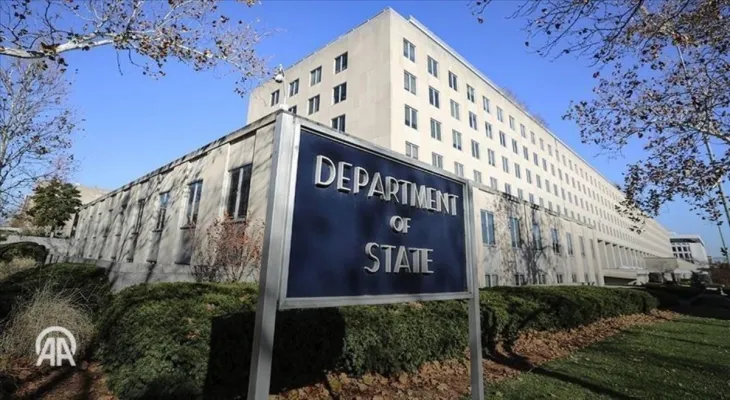Search here
Newspaper
Search here

Arab Canada News
News

Published: April 19, 2025
Damascus – Arab Canada News
The U.S. Department of State, through its closed embassy in Damascus, issued a stern warning to American citizens against traveling to Syria, claiming to have received "reliable information" about imminent attacks that may target civilian and tourist sites in the country, amid increasing statements indicating a shift in Washington's stance towards the Syrian situation following recent political changes.
The warning was issued in a statement published on the website of the U.S. Embassy in Damascus, which has been closed since 2012, with the Czech Embassy currently representing American interests in Syria. The U.S. Department of State clarified that it is monitoring "detailed information regarding potential threats, including locations frequented by tourists and the public," without revealing the nature of those threats or the parties behind them.
Fourth-Level Warning
The U.S. Department of State classified Syria under the fourth level of its travel warning system, which is the highest level on the warning scale that includes four levels. This classification means that travel to Syria is "prohibited," due to what the department described as "high risks of violence and insecurity."
The department noted that attacks "may occur without prior warning," adding that they may target public gatherings, markets, places of worship, hotels, schools, densely populated areas, and even transportation means.
It also reminded that the U.S. Embassy in Damascus remains closed, and that there are no consular services available, urging American citizens in Syria to contact the American interest section at the Czech Embassy in case of an emergency.
Repeated Warnings and Political Backgrounds
The new warning is the latest in a series of similar warnings issued by Washington during March, in which it warned of "imminent attacks" without any confirmed incidents recorded later, raising questions about the timing and possible backgrounds of these repeated security alerts.
This development comes after weeks of the U.S. State Department downgrading the diplomatic status of the Syrian mission to the United Nations, and not officially recognizing any entity as the "legitimate government" of Syria at this time. It also changed the visas of mission members from diplomatic to special visas for individuals representing unrecognized governments.
U.S. Conditions for Normalization with the New Administration in Damascus
According to a report published by the American Wall Street Journal on Thursday, Washington has informed the new Syrian administration of a set of conditions that must be met before any move towards normalizing relations, which include:
Taking strict measures against what it describes as "extremist groups."
Expelling Palestinian factions from Syrian territory.
Full cooperation with the Organization for the Prohibition of Chemical Weapons to secure what remains of chemical weapons from the previous regime.
Securing uranium reserves.
Appointing an American point of contact to search for 14 missing American citizens in Syria.
Transforming Political Context in Damascus
These warnings come at a time when Syria is undergoing a sensitive political transitional phase, after Syrian factions took control of the capital Damascus on December 8, 2024, ending more than six decades of Ba'ath Party rule and 53 years of the Assad family's dominance.
On January 29, 2025, the new Syrian administration announced the appointment of Farouk al-Shara as the head of state during the transitional phase, which is supposed to last five years according to the official announcement.
While decision-making capitals in the West are closely monitoring these developments, it appears that the United States is taking a more cautious approach toward dealing with the ongoing changes, hinting at linking any diplomatic or political move to specific security and cooperative demands.
Summary
The U.S. Department of State's warning against travel to Syria reflects the ongoing tension in the relationship between Washington and the new administration in Damascus, and serves as a dual political and security message. In the absence of an effective American diplomatic mission on the ground, U.S. influence tools in Syria remain focused on statements, pressure, and warnings, amidst developments that could reshape the future of this country still recovering from over a decade of conflict.
Comments